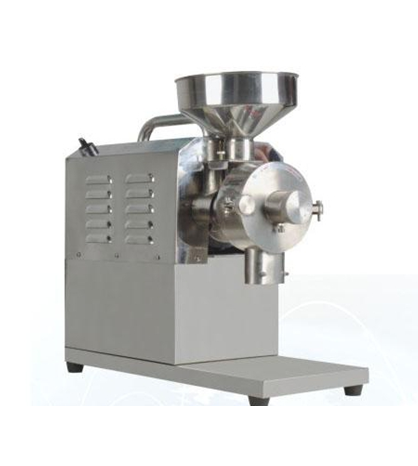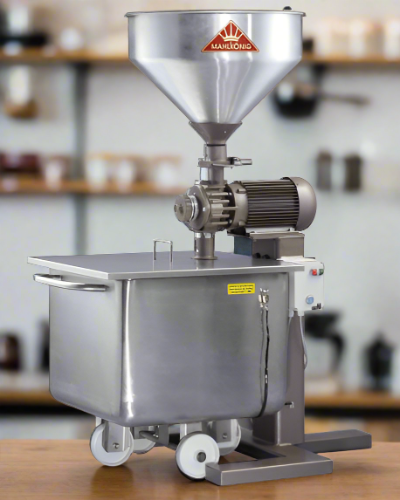Industrial Coffee Grinder: Price, Quality, and Performance Compared
Wiki Article
Industrial Coffee Mill Overview: Increase Effectiveness and Quality
In the affordable landscape of coffee production, choosing the best industrial coffee grinder plays a crucial duty in boosting both effectiveness and item top quality. Understanding the nuances of different grinder kinds and key functions-- such as personalized work setups and robust construction-- can considerably influence the last taste account of the coffee.Understanding Mill Kinds
When picking a commercial coffee grinder, understanding the different kinds readily available is essential for maximizing both flavor removal and functional performance. The 2 key kinds of mills are blade grinders and burr grinders.
Inevitably, picking the ideal kind of mill is essential to keeping quality and performance in coffee manufacturing, making it critical for businesses to invest in high-quality burr mills for optimum outcomes.
Key Functions to Consider
Picking a commercial coffee grinder calls for careful consideration of a number of crucial functions that can dramatically influence both efficiency and the general coffee experience. Among the key aspects to review is the grinding system. Burr mills are generally preferred over blade mills, as they provide a consistent grind dimension, which is essential for optimum extraction and taste.One more crucial function is the grinder's capability. Relying on the volume of coffee you need to procedure, choose a model that can handle your demands without compromising rate or high quality. Additionally, think about the work setups offered. A functional mill with multiple settings allows you to customize the grind size to various developing approaches, enhancing the coffee's flavor account.
The building and construction material likewise plays a function in resilience and maintenance. Stainless-steel parts typically offer long life and are less complicated to cleanse, which is crucial for preserving hygiene criteria. Last but not least, evaluate the mill's noise degree, especially in a busy coffee shop or production atmosphere, where too much sound can be disruptive. Purchasing a mill that stabilizes these features can significantly boost both functional effectiveness and the top quality of the coffee offered.
Optimizing Grinding Process
To achieve the ideal results in coffee prep work, maximizing the grinding process is crucial. The grind dimension considerably influences removal, taste, and total quality of the brewed coffee.


Additionally, checking the grinding rate can optimize the procedure. Slower grinding often produces much less heat, maintaining fragile tastes and scents. On the other hand, faster grinding might produce extreme heat, negatively affecting the coffee's top quality.
Upkeep and Treatment Tips
Proper upkeep and treatment of industrial coffee mills are vital for making certain ideal efficiency and durability. Routine cleaning is the foundation of upkeep; deposit accumulation can influence taste and grinding efficiency. her latest blog It is advisable to clean the mill after each use, cleaning down the outside and removing any kind of coffee premises from the burrs.Furthermore, inspect the grinding burrs for deterioration. Plain burrs can compromise work uniformity, so they should be changed as essential. Industrial Coffee Grinder. Occasionally calibrating the mill is also essential, as this keeps the preferred work size for numerous brewing techniques
Lubrication of relocating parts need to be done according to the manufacturer's specs, as this reduces rubbing and lengthens the life of the equipment. It is important to make use of food-grade lubricating substances to make sure security and compliance with wellness regulations.
Lastly, keep the grinder in a stable and dry setting to stop corrosion and deterioration. By adhering to these maintenance and care ideas, operators can improve the performance of their commercial coffee grinders while guaranteeing top notch outcome and expanded functional life.
Roi Analysis
Examining the roi (ROI) for industrial coffee mills is important for organizations seeking to enhance their coffee production abilities. A detailed ROI evaluation assists identify the economic practicality of buying high-grade mills, allowing businesses to evaluate the preliminary expenses versus potential gains.Assess the purchase cost of the grinder, including installation and any type of essential adjustments to existing framework. High-performance mills frequently lead to reduced grinding time and increased throughput, which can considerably improve efficiency.
Furthermore, think about the impact on product high quality. Industrial Coffee Grinder. Superior mills yield a more consistent grind dimension, which can boost flavor accounts and customer fulfillment, ultimately driving sales. By boosting the high quality of the final product, businesses can warrant higher pricing, causing raised revenue
Verdict
In recap, a commercial coffee grinder plays a crucial role in enhancing both effectiveness and navigate to this website product top quality within coffee production. Inevitably, the tactical financial investment in a trusted mill adds considerably to improved earnings and competition in the coffee market.In the competitive landscape of coffee production, choosing the appropriate commercial coffee grinder plays a crucial duty in enhancing both performance and item quality. The two main kinds of mills are blade grinders and burr mills. Within the burr mill group, there here are the findings are flat burr mills and conelike burr mills, each with its advantages. Burr mills are generally chosen over blade grinders, as they supply a consistent work size, which is vital for optimal extraction and flavor.
In summary, a commercial coffee mill plays a crucial role in improving both efficiency and product high quality within coffee manufacturing.
Report this wiki page